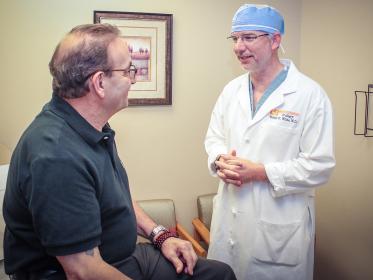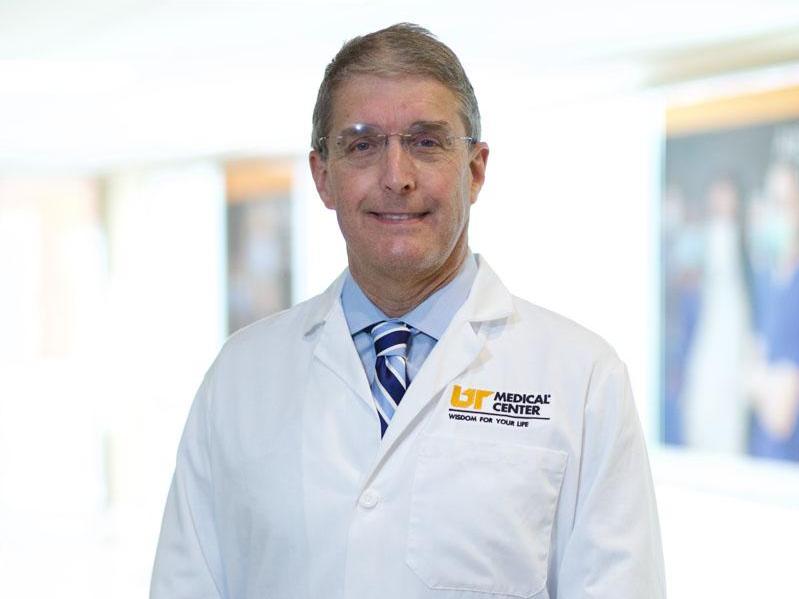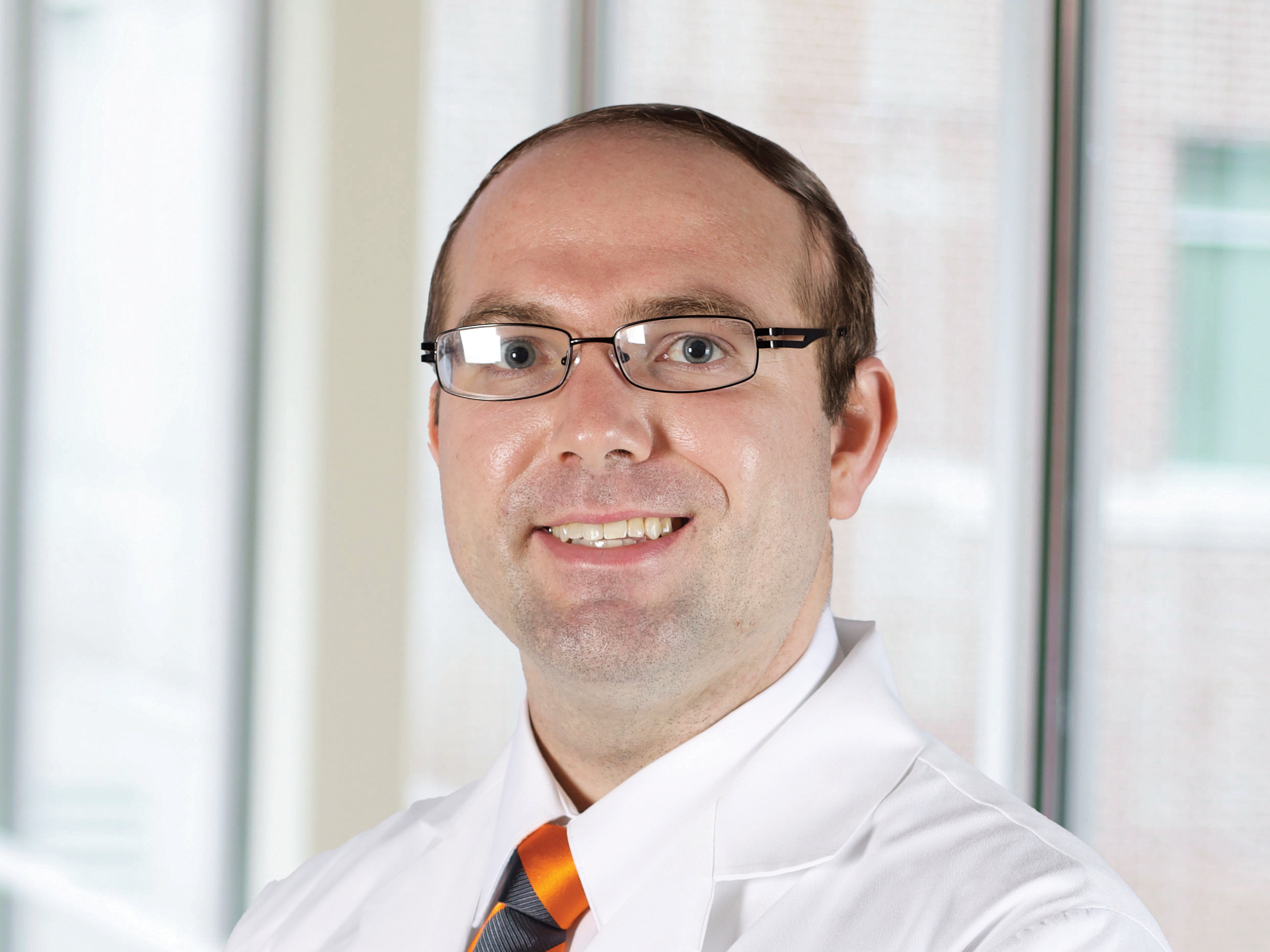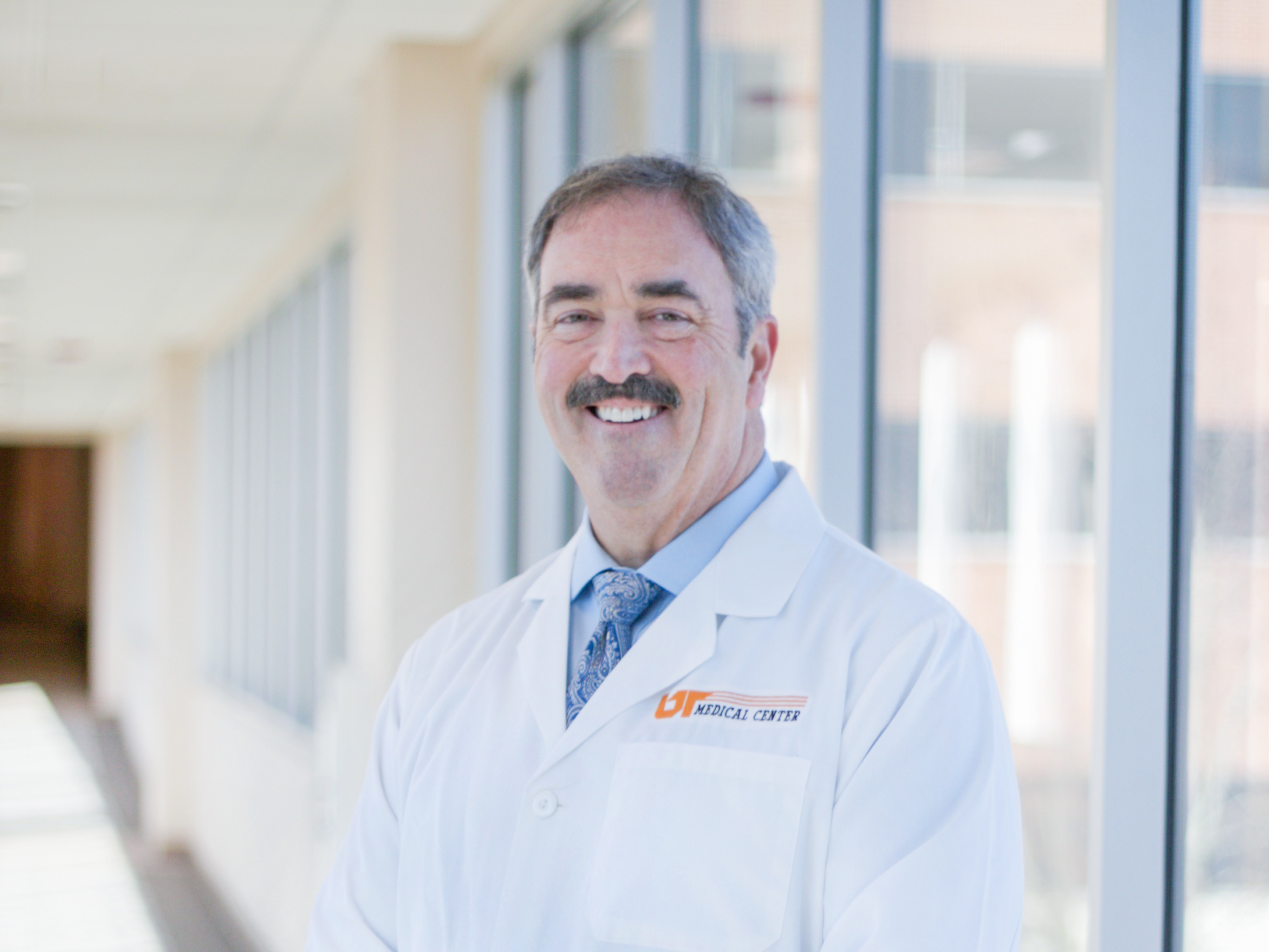Overview
The Cancer Institute at The University of Tennessee Medical Center offers the broadest spectrum of cancer specialists and services to care for our patients with prostate cancer.
Your Care at the Cancer Institute
Our team provides patients with prostate cancer access to all of their cancer care including surgical consultations, hormone treatment, radiation therapy, genetic counseling/testing, chemotherapy infusions, and supportive/integrative health services.
We offer a multidisciplinary, coordinated approach to the prevention, screening, diagnosis, and management of benign and malignant tumors of the male genitourinary system.
The Cancer Institute offers a highly trained team of oncologists and urologists trained at some of the top institutions in the country, bringing the best care to patients in our region. Our center is designed to assist and support patients through their cancer journey so they can choose the most appropriate treatment plan based on their particular diagnosis and needs. Additionally, our physicians have offices in many locations throughout East Tennessee to better serve patients with prostate and urologic cancers.
Our team of board-certified urologists specialize in the surgical and medical treatment of prostate cancers. Our urologists remain on the cutting edge of surgical techniques and are well trained in minimally-invasive techniques (including robotic assisted surgery), employing real-time ultrasound guidance, fiber-optic endoscopic equipment, and various lasers in the treatment of multiple benign and malignant conditions.
Patients are reviewed at multidisciplinary conferences where urologists, surgeons, medical oncologists, radiation oncologists, radiologists, pathologists, genetic counselors, nurses and clinical trials coordinators gather to determine the best individualized treatment plan for each patient. This level of coordination ensures that patients are receiving the highest level of care, offering the best outcomes and quality of life. Our comprehensive care teams also include integrative healthcare, a registered dietician, financial counselors, pastoral care, palliative care, and a social worker.
Risk Factors & Diagnosing Your Prostate Cancer
Prostate cancer is the third most common cause of death from cancer in men of all ages and is the most common cause of death from cancer in men over age 75. Prostate cancer is cancer that starts in the prostate gland. The prostate is a small, walnut-sized structure that makes up part of a man’s reproductive system. It wraps around the urethra, the tube that carries urine out of the body.
The major risk factors for prostate cancer are age, family history, and ethnicity. People who are at higher risk include:
- African-American men
- Men who are older than 60
- Men who have a father or brother with prostate cancer
Men should talk with their physicians about screening for prostate cancer. Screening for prostate cancer includes a prostatic specific antigen (PSA) test and a digital rectal exam (DRE). The PSA is a blood test drawn at the time of screening. A DRE is performed by a physician who inserts a lubricated, gloved finger into the rectum to feel for abnormalities of the prostate.
Click here to see FREE screening opportunities.
Because of PSA testing and DRE exams, most prostate cancers are now found before they cause any symptoms.
Prostate biopsy is the only test that can confirm a diagnosis of prostate cancer. Tissue from the prostate is viewed underneath a microscope. There are two reasons your doctor may perform a prostate biopsy:
- Your PSA blood test is high.
- A rectal exam may show a large prostate or a hard, irregular surface. Because of PSA testing, prostate cancer is diagnosed during a rectal exam much less often.
Your Treatment Options
The decision on how to treat your prostate cancer is one that involves your active participation with understanding of your diagnosis, treatment options, and taking into consideration your lifestyle and values. Your doctor may talk with you about several options, including surgery, radiation therapy, hormone therapy, and chemotherapy. In older patients, simply monitoring the cancer with PSA tests and biopsies may be an option.
Surgery
Surgery is usually only recommended after a thorough evaluation and discussion of the benefits and risks of the procedure. Surgery to remove the prostate, and some of the tissues around it is an option when the cancer has not spread beyond the prostate gland. This surgery is called radical prostatectomy. It can also be done with robotic surgery.
- Minimally invasive procedures (laparoscopic & endoscopic)
- Minimally invasive prostate surgery
- Nerve-sparing prostatectomy
- Robotic surgery with the da Vinci Surgical System
- Standard or “open” surgery
Radiation Therapy
Radiation therapy works best to treat prostate cancer that has not spread outside of the prostate. It may also be used after surgery if there is a risk that prostate cancer cells may still be present. Radiation therapy uses high-powered x-rays or radioactive seeds to kill cancer cells.
- External beam radiation therapy uses high-powered x-rays pointed at the prostate gland.
- High dose rate prostate brachytherapy
- Permanent seed implants
Hormone Therapy
Testosterone is the body’s main male hormone. Prostate tumors need testosterone to grow. Hormonal therapy is any treatment that decreases the effect of testosterone on prostate cancer. These treatments can prevent further growth and spread of cancer.
Chemotherapy and Immunotherapy
Chemotherapy and immunotherapy are used to treat prostate cancers that no longer respond to hormone treatment. An oncology specialist will usually recommend a single drug or a combination of drugs.
Clinical Trials
Clinical trials are research studies made available to patients that offer the newest treatments and test new ways to prevent, detect, diagnose and treat diseases. For more information, visit Clinical Trials.
Monitoring
After treatment for prostate cancer, you will be closely watched to make sure the cancer does not spread. This involves routine doctor check-ups, including serial PSA blood tests (usually every 3 months to 1 year).
Many patients with prostate cancer that has not spread can be cured, as well as some patients whose cancer has not spread very much outside the prostate gland.
Even for patients who cannot be cured, hormone treatment can extend their life by many years. You can ease the stress of illness by joining a support group whose members share common experiences and problems.
Your Next Steps
The Cancer Institute’s Prostate Service offers patients in Knoxville and the surrounding East Tennessee area state-of-the-art diagnosis and treatment of genitourinary cancers. The urologic oncologists at the Cancer Institute have years of experience in treating both urologic and male genital malignancies. The Cancer Institute’s urologic specialists have been leaders in providing new, highly advanced procedures to the East Tennessee Region.
Our Cancer Institute team is here for you in what can be a very stressful time. Please don’t hesitate to ask questions and request help when you need it. Our new patient section will provide you additional information about the Cancer Institute and everything you need to know to prepare for your first visit.
For more information on prostate cancer, visit our Support Groups & External Resources page to enhance your research and understanding of your diagnoses.


















